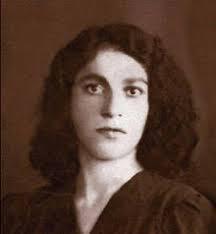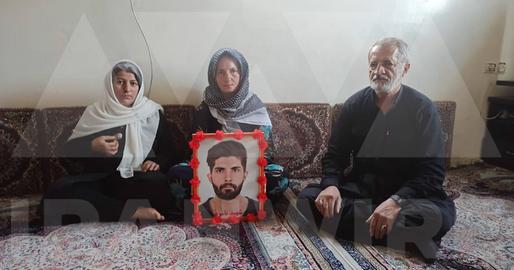The history of Iran (and the world) is the history of the lives and fates of people. Each has laid down a brick to give shape to a ceiling – sometimes at great cost. Everyone has played a role. But there are always those women and men who have, due to their great talent either for creating something new or tearing things apart, lived influential lives beyond the ordinary.
Women fill many pages of history over Iran’s past two millennia. The stories take many forms; whether women have promoted public wellbeing, resisted discrimination, developed their educational and social status, opposed religious pressure, contributed to scientific research, shaped politics, created literature, film or music; or for more more pernicious acts like inciting violence, spreading ignorance, or abusing power for their own aims.
IranWire’s “Influential Women” collection is just a start in surfacing these stories. The people on this list have left a mark – whether on the daily lives of their families or on all of Iranian and wider society. IranWire does not condone or condemn each activity of the people in this collection; either way, it is impossible to deny their influence.
This new list – of influential Iranian Jewish women – is the second in an ongoing series of such biographies of Iranian women from all backgrounds being compiled by IranWire. Readers are welcome to send suggestions to enrich this collection.
Azizeh Beral, a pharmacist who became a social worker ministering to the needs of the poor, was born in 1921 to a wealthy and aristocratic Jewish family in Tehran. She lost her mother, Golin Abir, early in life; her older sister, Mohtaram, took responsibility for caring for Azizeh and their other siblings.
The historical record on the lives of prominent Iranian Jewish women, including Azizeh Beral, is regrettably lacking in detail. The 7Dorim website, updated by the efforts of Yusef Setarehshenas, records that Azizeh studied at the Alliance School in Tehran. This storied school, later called Etehad, was variously nicknamed the School of the Jews, School of the French, School of “Majid Tales,” in reference to popular stories by Houshang Moradi Kermani, and later even the School of the Shahid [martyr] Halabian.
The Alliance School – linked to the Paris-based “Alliance israélite universelle,” an organization created in 1860 by Adolphe Crémieux, a 19th century French statesman, to safeguard the rights of Jewish people around the world – was founded in 1911 at Crémieux’s request during Naser al-Din Shah’s trip to France. The School’s purpose, in Crémieux’s appeal, was the promote unity and the education of Iranian Jews. But it soon grew from purely a Jewish school to a national one – responsible for educating prominent Iranians such as Mirzadeh Eshqi, Zabihollah Mansuri, Nezam Vafa, Javad Badizadeh and Mohammad Qazvini.
Azizeh was a studious and intelligent girl; she graduated from primary school, and later from Azarm High School, with high grades. She entered the University of Tehran at the age of 17, studying pharmacology, a course which her brother Musa had also studied. Azizeh was one of Iran’s first female pharmacologists, graduated from the University of Tehran at the age of 21, after which she married her cousin Naser and worked for eight eyars at a pharmacy founded by her brother Musa.
But Azizeh’s restless soul led her down a different path. Having grown up in a wealthy family, she chose to leave the pharmacy behind and to devote her time to charity. Azizeh took up the causes of deprived children who could not attend school and elderly people living in poverty in Tehran.
Azizeh began working as a social worker in the Ruhishad School in Tehran’s Darvazeh Dolat district. She later organized a charity feast, together with Ruhishad School colleagues and the Synagogue Council, raising funds to support the new Hatef Women’s Organization. The body – which was supported and encouraged by Iranian Jews – was established with a range of humanitarian aims. Hatef sought to create educational facilities for poor children, provide them with textbooks, offer a special loan called sherafat [nobility] to uneducated and disadvantage people, to rehabilitate women, and to provide facilities for those who were financially incapable of forming a family. And the group did not limit some of its charitable grants to just Jewish schools – but also to students at schools in other deprived communities.
The Hatef Women’s Organization soon grew – in Tehran and other cities – and more than 80 students received university scholarships and the right to enter the university every year. The group even attracted the attention of Farrokhru Parsa, the Minister of Education of the time, who asked Azizeh to direct a special educational committee for exceptional children in poor districts of Tehran.
Later, the Iranian Women Organization, founded in 1966 with the assistance of the state sector and with the goal of establishing family welfare centers, requested Azizeh Beral to become a member of this organization as the representative of the Jewish women community. The request was made at the time when the fame of this charity woman worker culminated in Tehran.
The Iranian Women Organization later praised Azizeh's ten years of service in establishing social work kiosks at railway stations and the consulting services she offered to ordinary people.
Azizeh Beral was one of the first people in Iran who tried to help disabled and ageing low income people by establishing a nursing home in the Udlajan district of Tehran. Social workers at Hatef, trained in this work, were sent to the homes of the disabled and elderly to bathe them provide other hygienic services.
Azizeh Beral’s voluntary work was focused on the Jewish community – but it extended to many other deprived people regardless of their religion.
The 1979 Islamic Revolution forever changed Azizeh’s life – just as it changed the lives of everyone in Iran. Azizeh was forced to leave Iran after the Revolution, and with it her legacy of achievements, to emigrate to the United States. But once settled in Los Angeles, Azizeh again took up her social work, becoming a member of the board of the Iranian Jewish Federation and the B'nai B'rith organization. She also worked with the Jewish Old Peoples’ Association of Los Angeles to support elderly Jewish Americans. Azizeh’s social work continued until 2008, when she died at the age of 84 in California, and was buried there.
There is a dearth of documentary material testifying to Azizeh’s life – despite her half-century of activism and service. Iran’s Jewish minority has always faced persecution and opposition. The Iranian Jewish population, reaching 100,000 before the 1979 Revolution, began to decline during the political changes of the past 40 years. Iranians who could afford to leave the country did so – that is why much of their recorded history has been damaged or lost.
Parts of the legacy of the Iranian Jewish community survive – such as the Sapir Hospital founded by Dr. Ruhollah Sapir in Tehran. Sapir Hospital exists still and serves many people in today’s Iran.
A day may arrive when little is left of Iran’s Jewish population – but they will forever have played a part in building modern Iran. And Azizeh Beral played her role in full.





























comments